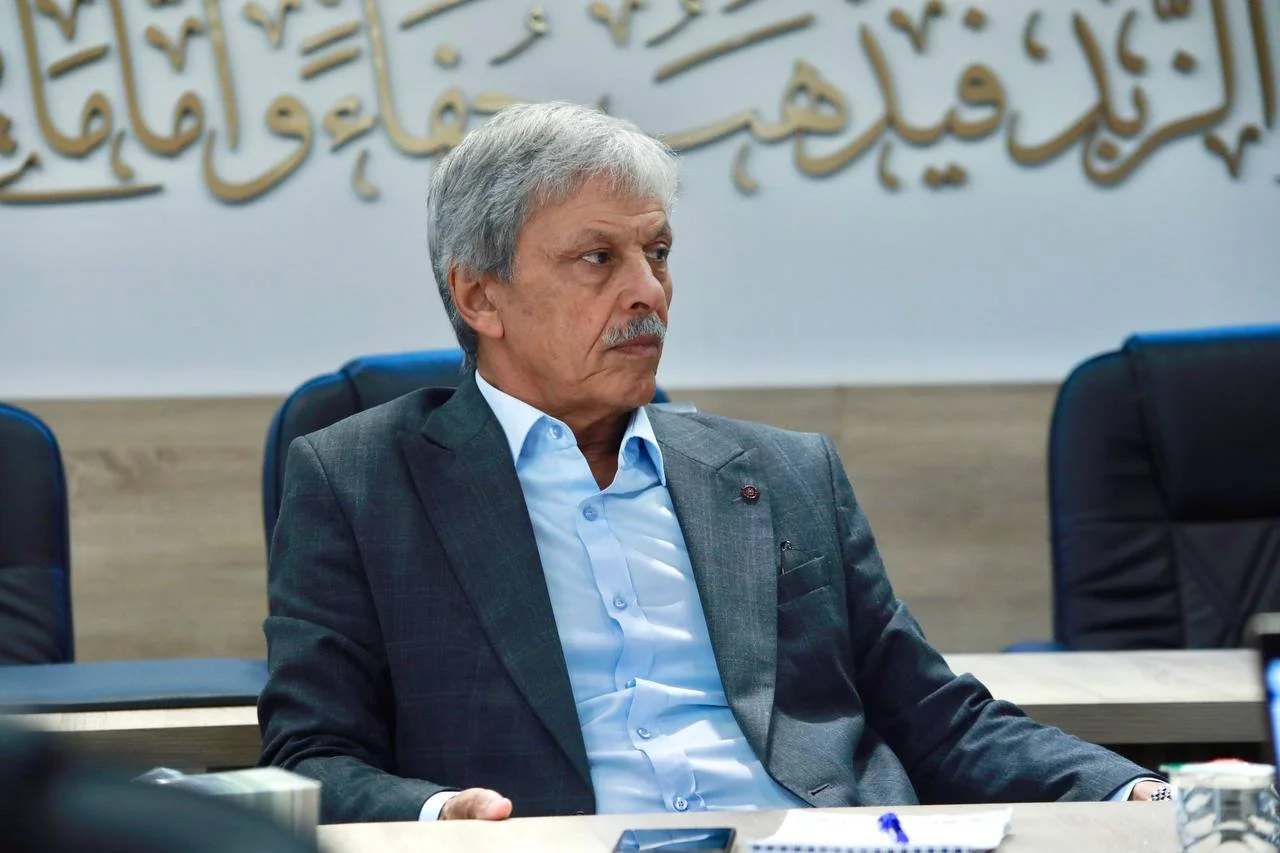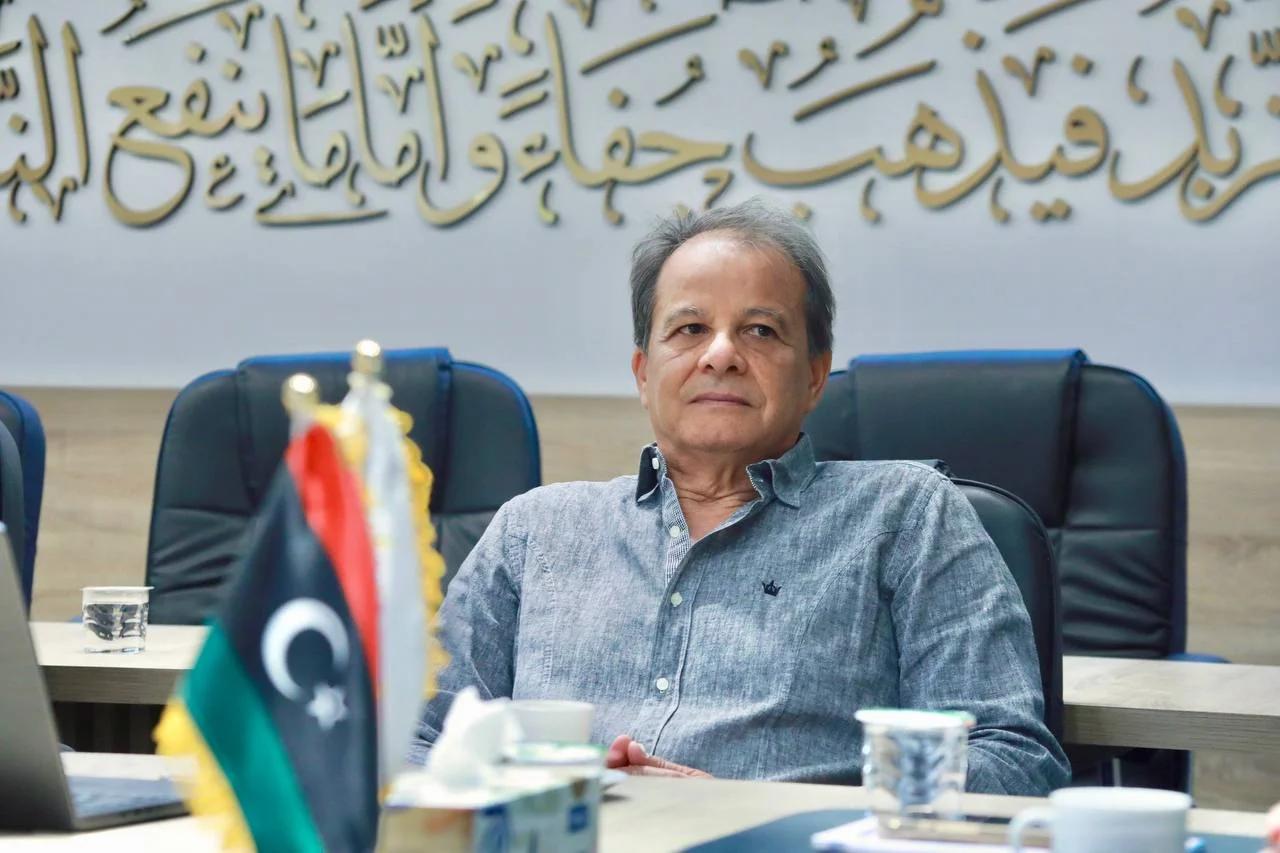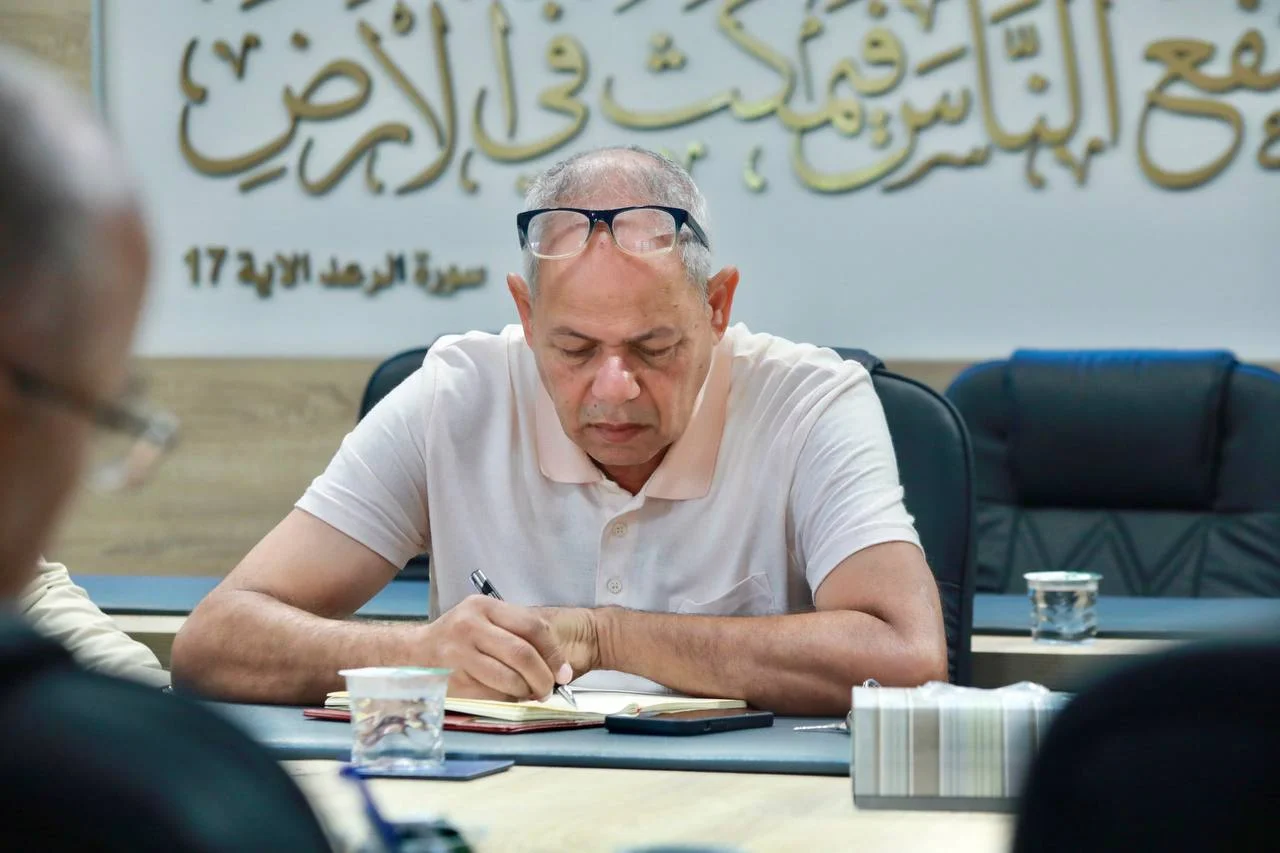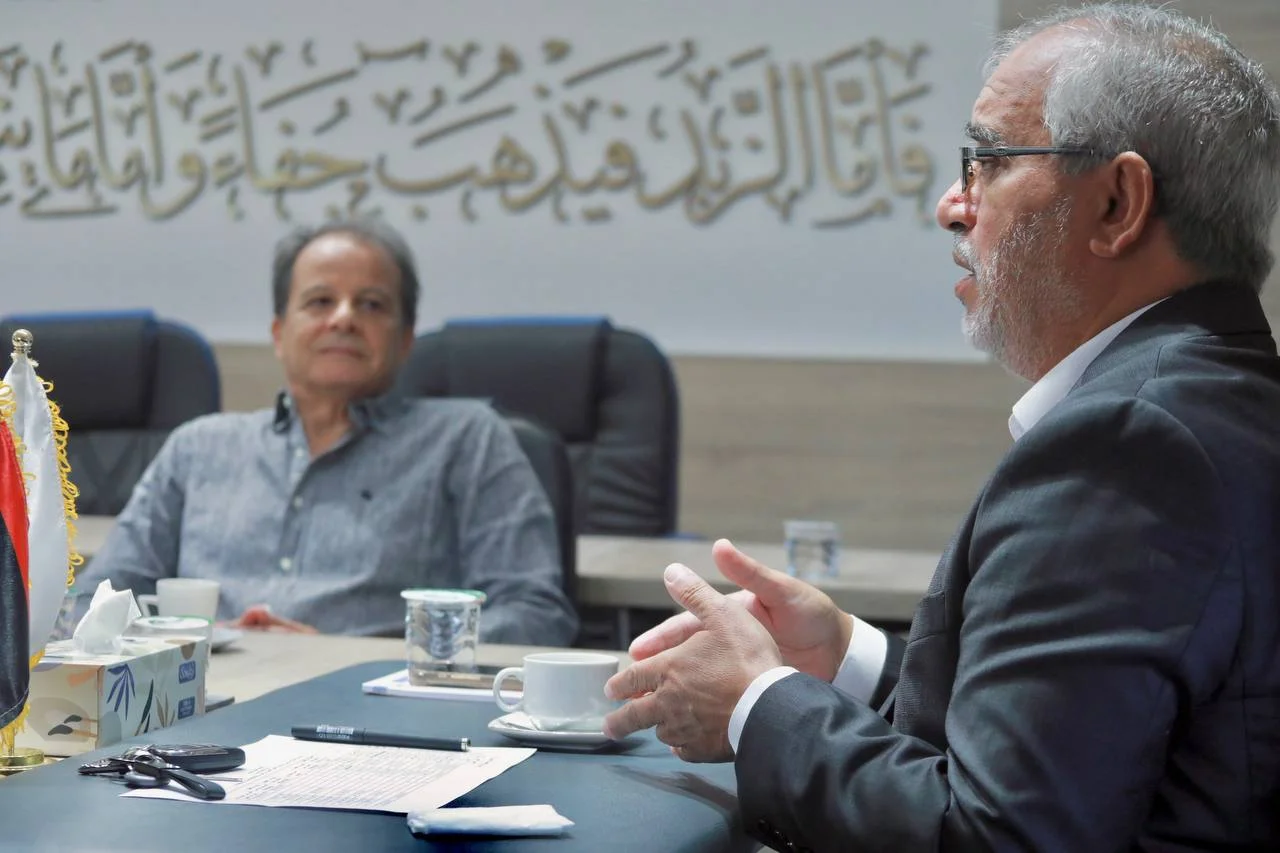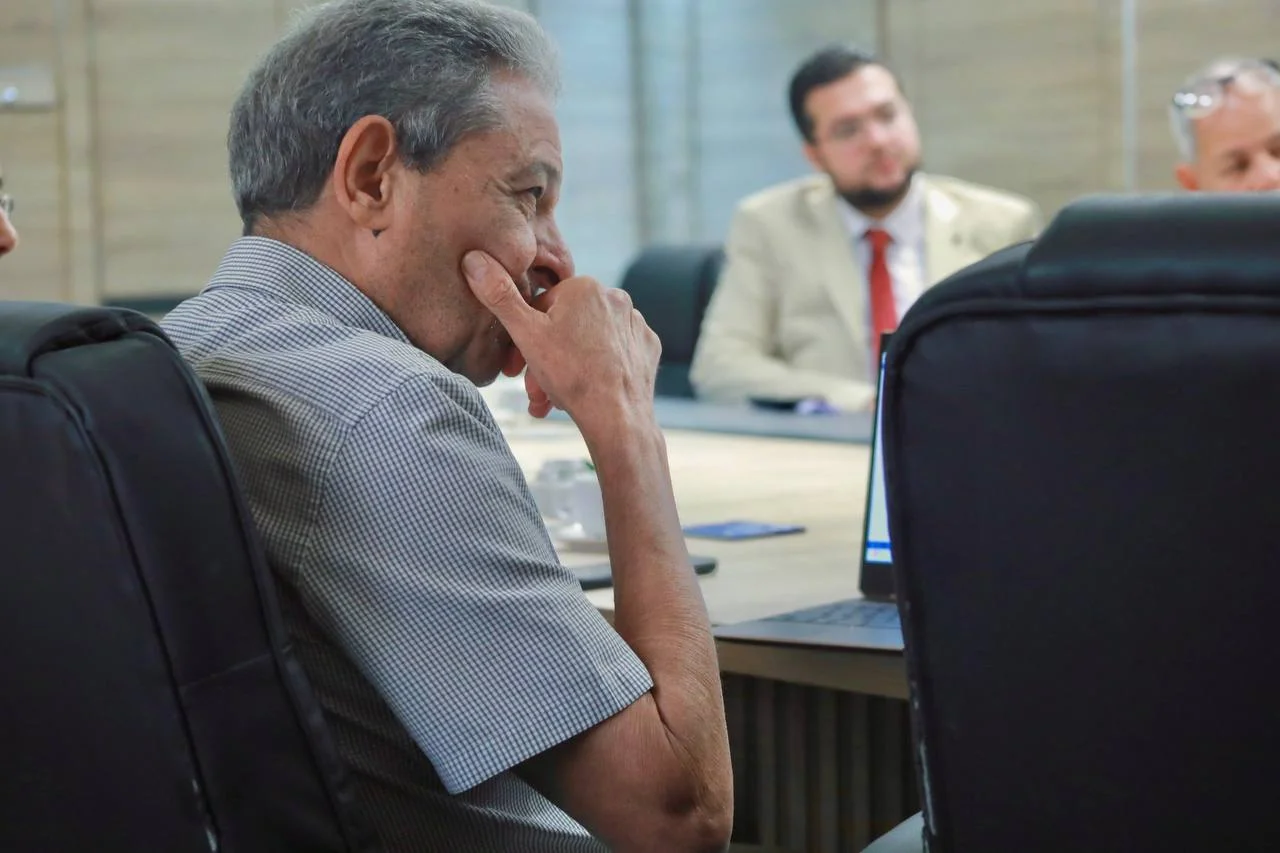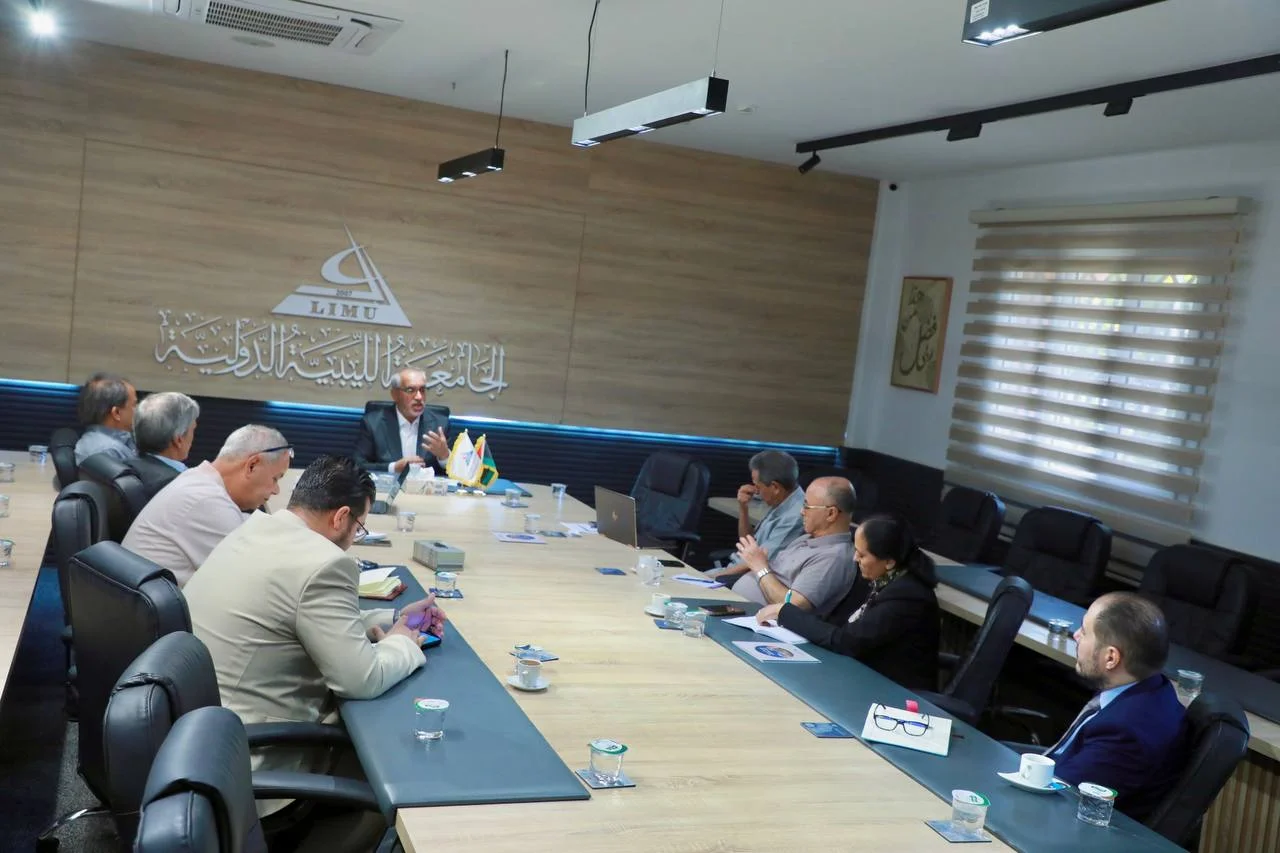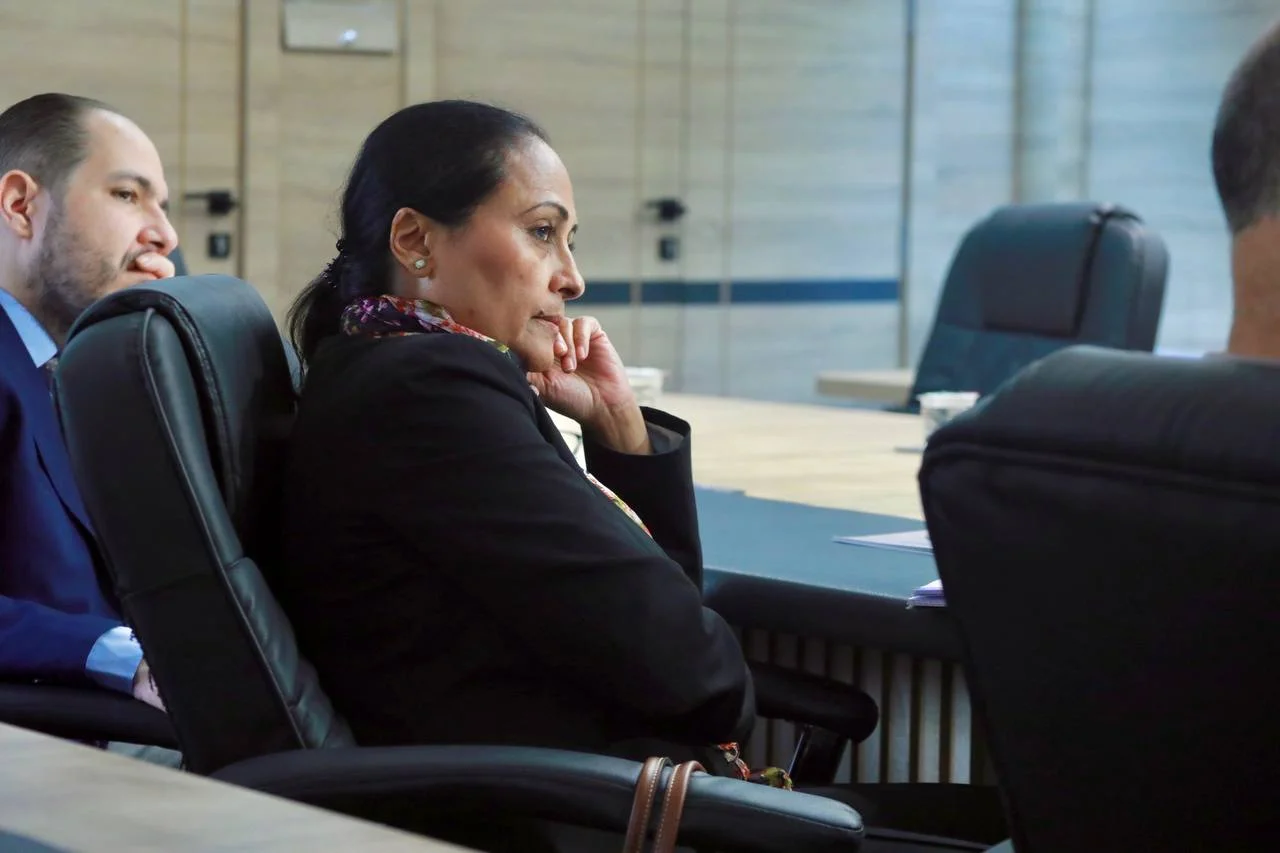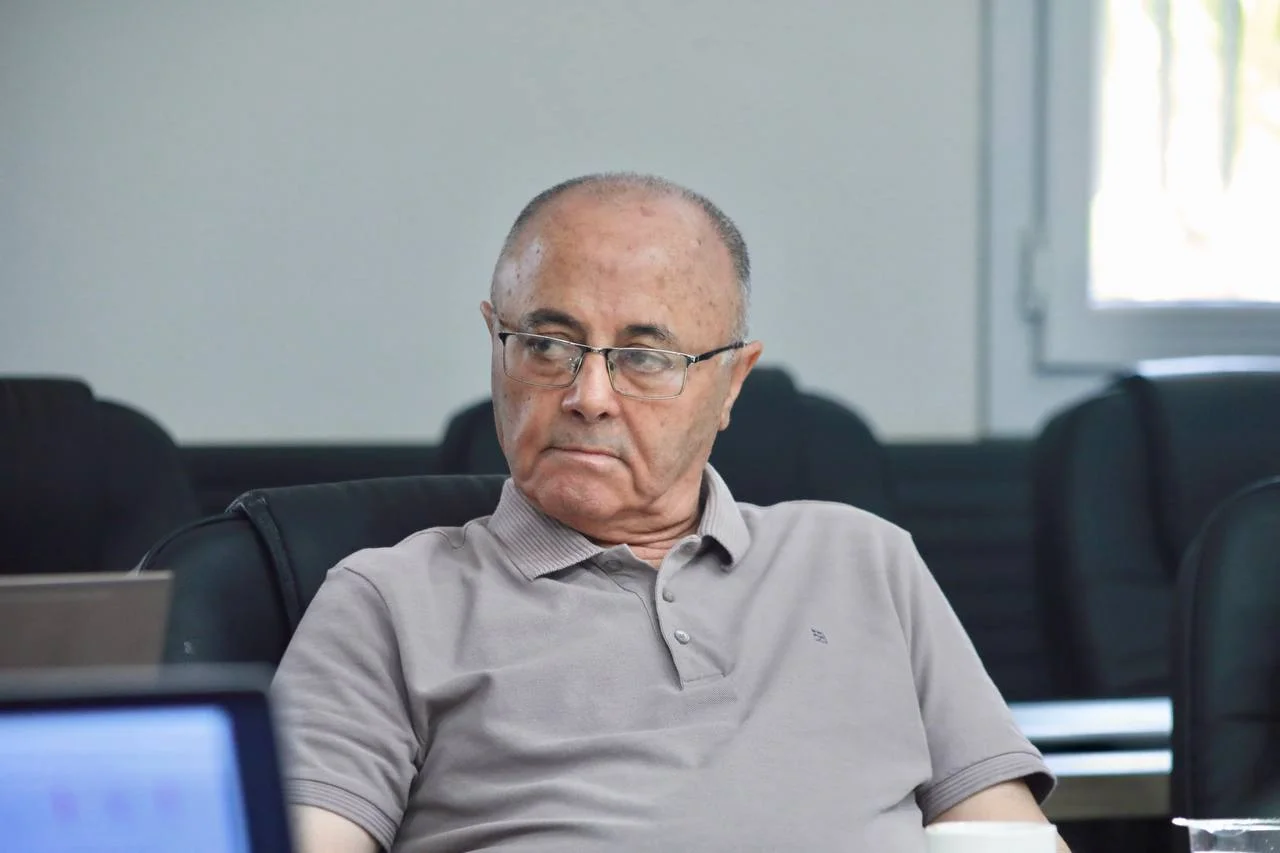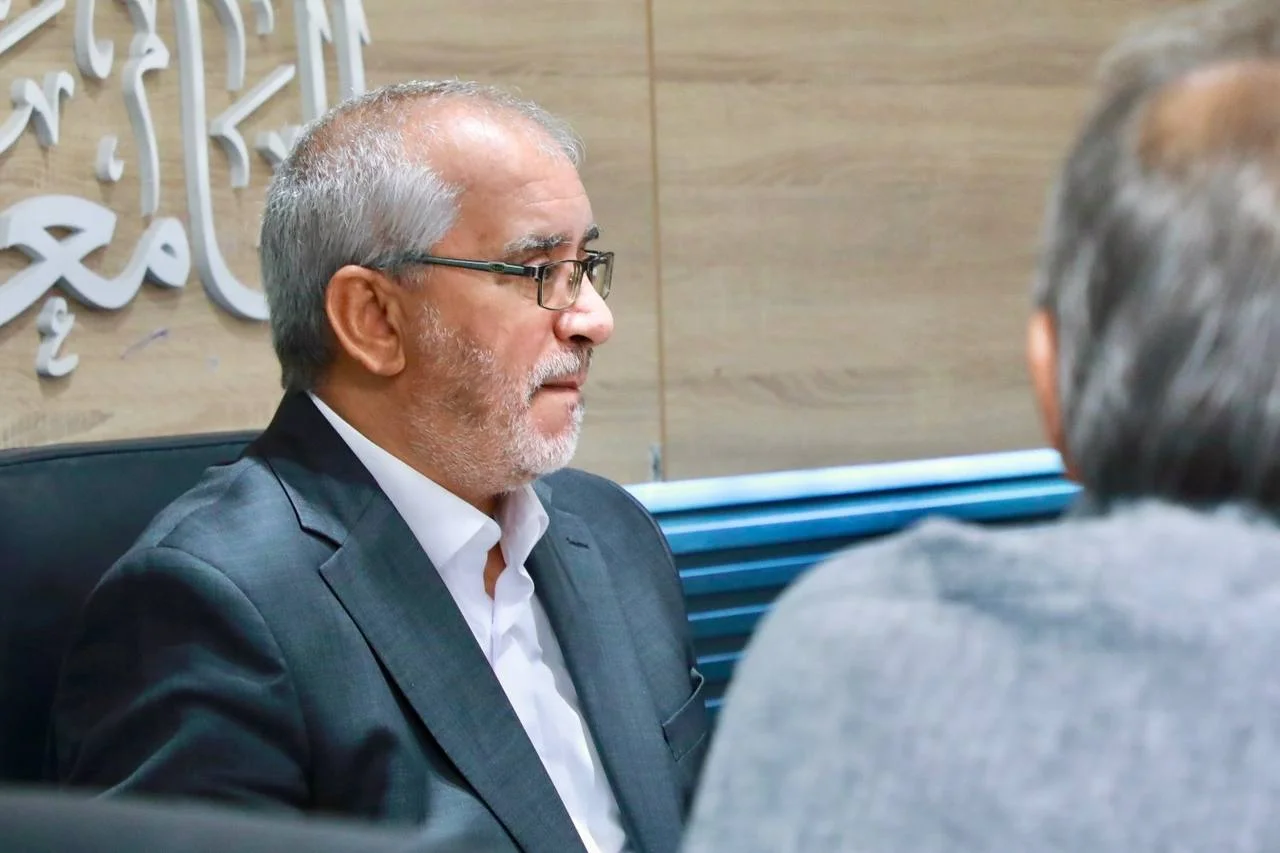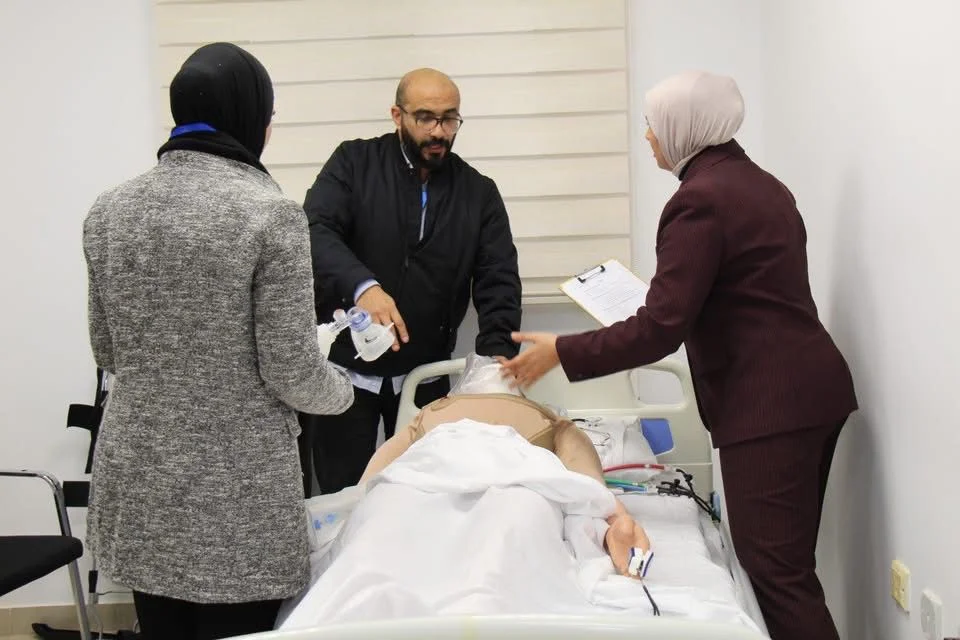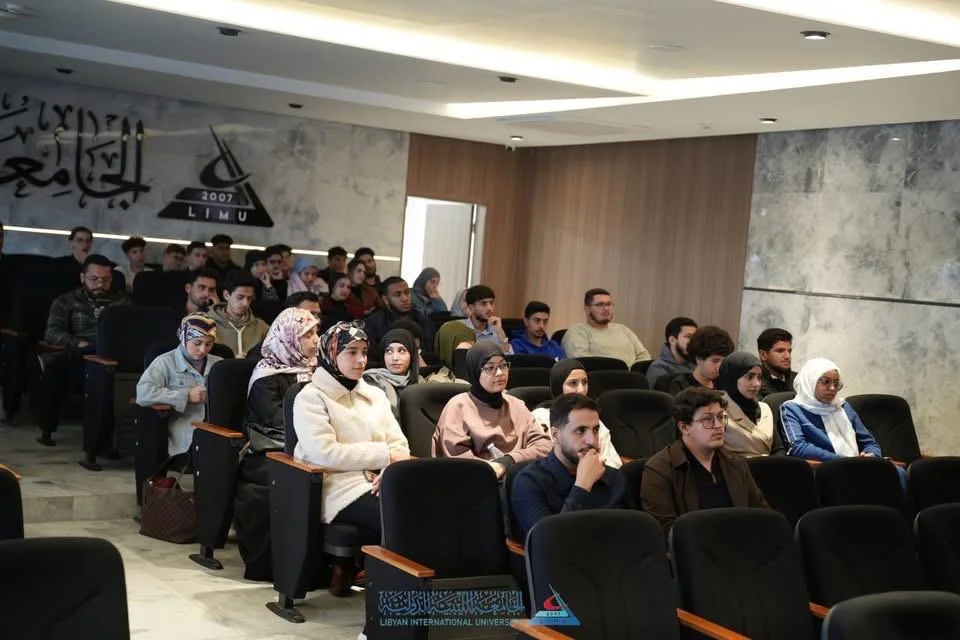In the presence of the university’s president, the Libyan Center for Change held its inaugural session on Tuesday, September 9, 2025, in the National Unity Hall.
The event was led by key figures from LIMU and other notable institutions. The session was spearheaded by the university president, Prof. Dr. Mohamed Saad Embarek, and was attended by a distinguished group of leaders. Among them were Dr. Zahi El-Mughrabi, director of the Al-Hassadi Center for Critical Thinking; Dr. Amal Suleiman El-Obeidi, director of the Libyan Center for Change; and Prof. Dr. Ali Saeed Al-Barghathi, vice president for community responsibility. Other attendees included directors from the Research and Consultancy Center, the Academic Center, and the Training and Continuing Education Center, as well as advisors to the president for training, governance, culture, and media.
The International Center for Legal Studies was represented by Habiba Saad El-Sheikhi. Prof. Dr. Mohamed Saad Embarek welcomed the attendees, emphasizing that they are not merely guests but partners in shaping the university’s vision and mission.
He expressed his delight at the recent establishment of two new centers: the Najib Al-Hassadi Center for Critical Thinking and the Libyan Center for Change. He described these centers as vital new additions that align with the university’s core mission as an intellectual and knowledge-based project. He stressed that LIMU’s role extends beyond education to actively foster positive change, aiming to guide the nation toward genuine progress and away from ignorance and backwardness. This endeavor is founded on noble values. The President highlighted the crucial role of universities in producing knowledge and building the nation’s future. He affirmed that universities serve as “houses of expertise,” offering serious research and consultation to society, acting as a catalyst for progress across all sectors. He added that the university’s mission goes beyond merely graduating competent professionals. It’s also about a tireless effort to save what can be salvaged before it’s too late, especially as the nation stands at a critical juncture.
Dr. Ali Saeed Al-Barghathi echoed this sentiment, emphasizing the university’s role as an institution that generates thought and knowledge, playing a significant part in the nation’s advancement and changing outdated concepts. Prof. Dr. Zahi El-Mughrabi, a political and academic researcher, spoke about the often-strained relationship between the academic community and both the government and society at large. He called for bridging this gap, which requires a substantial cultural and intellectual effort. Regarding the Al-Hassadi Center for Critical Thinking, El-Mughrabi explained that it aims to embody, institutionalize, and promote the ideas of the Libyan thinker Najib Al-Hassadi. He stated that the center’s focus will be on thought, criticism, and culture. El-Mughrabi expressed optimism about working under the LIMU umbrella, acknowledging its profound impact on higher education and its ability to create an unprecedented educational model even in the most challenging circumstances. Dr. Amal Suleiman El-Obeidi, a human rights and community activist who teaches at German universities, thanked LIMU for establishing the Libyan Center for Change. She asserted that the center will operate as an independent entity, focusing on its intellectual and cultural mission without interfering in political conflicts. While acknowledging the significant challenges in the current tumultuous environment, El-Obeidi affirmed that the center will redouble its efforts with a commitment to scientific mechanisms, integrity, and transparency. The session concluded with a call for ongoing coordination and collaboration among the university’s various centers and the Libyan Center for Change. The aim is to unite efforts, exchange expertise, and achieve shared goals.
